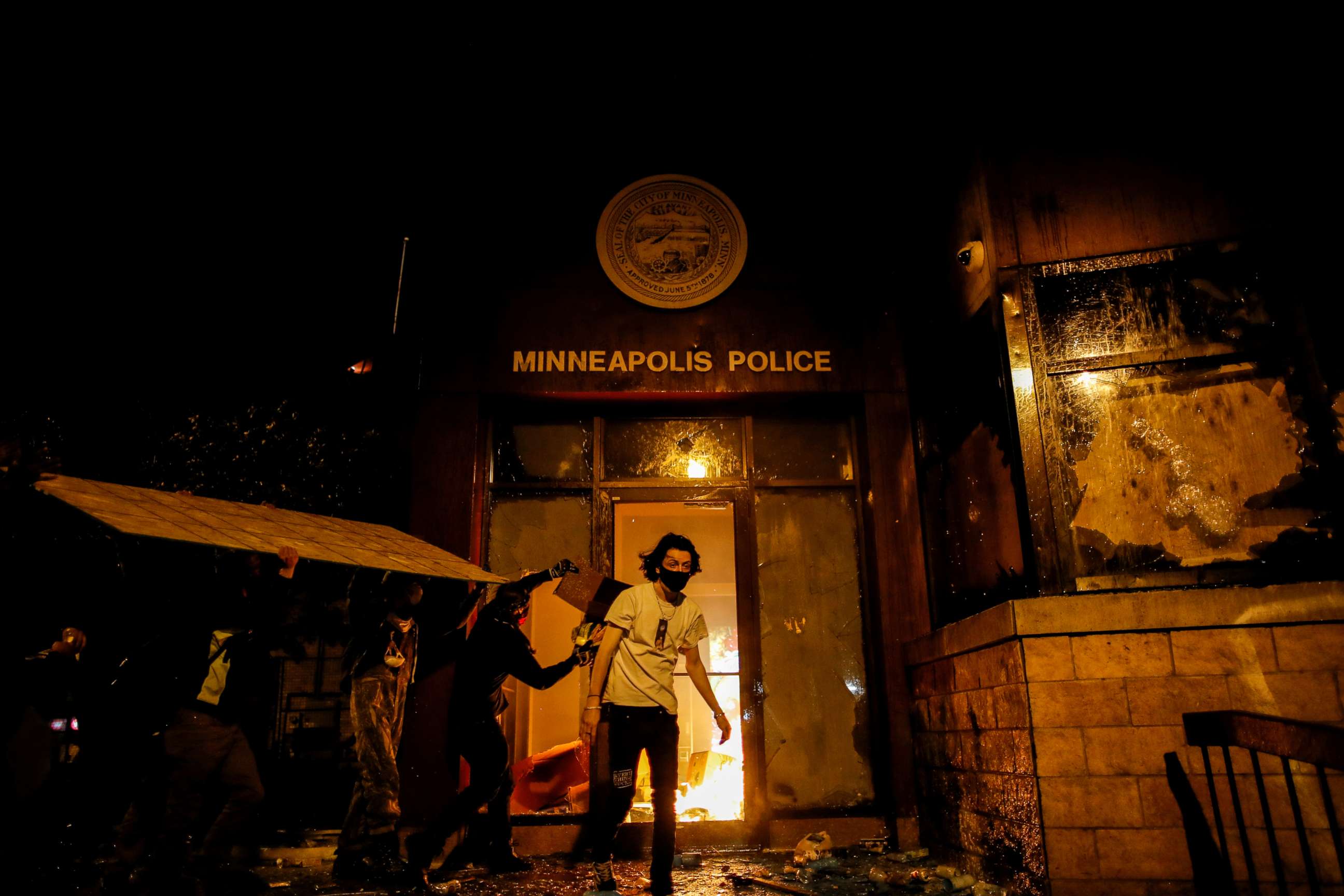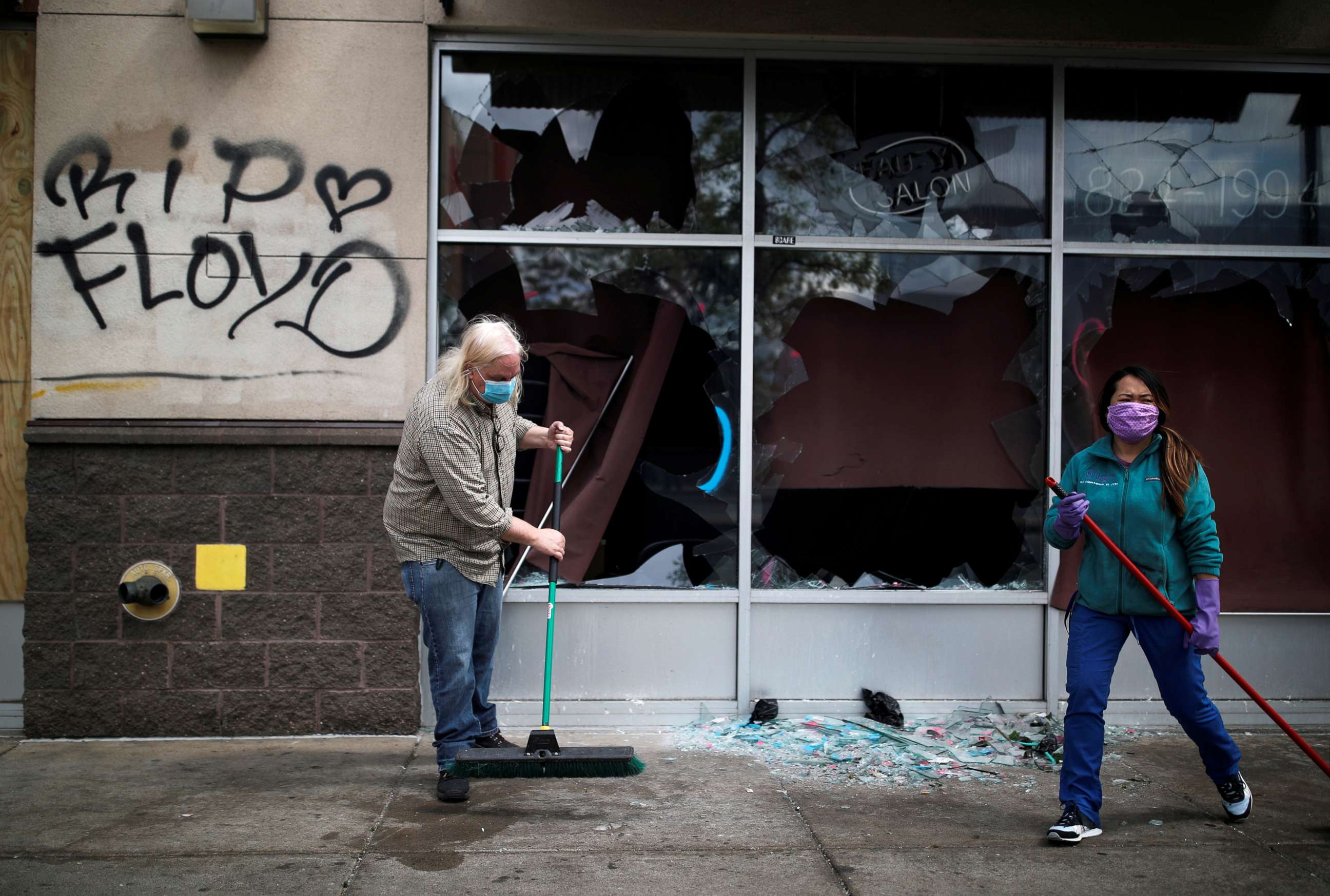Death of George Floyd sparks conversation about race, violence and protests
The Minneapolis man's death has sparked fiery protests in the city.
The tensions between police and protesters in Minneapolis endured another tense night on Thursday with more arrests and a police precinct left ablaze.
The overnight escalation happened shortly after a highly anticipated press conference from U.S. Attorney Erica MacDonald, when she announced that the investigation into the officers involved in George Floyd's death was still ongoing. The unrest was sparked after a disturbing video of Floyd's final moments went viral.
The damning almost 10-minute video, shows Floyd placed stomach down on the concrete, handcuffed behind his back with an officer's knee pressed onto his neck as he pleaded to breathe. Floyd also cried out for his own mother, who died two years ago. Derek Chauvin, who was identified as that officer, was charged with third-degree murder on Friday afternoon.
Nikole Hannah-Jones, a Pulitzer Prize-winning New York Times journalist who writes on racial injustice, spoke to "Good Morning America" on Friday.
"When you see that in front of witnesses, the agent of the state will kneel on a man's neck as he's begging for his life until the life seeps out of his body. ... You can't just picture that happening to white Americans," said Hannah-Jones.
Floyd's death is the latest of three caught-on-camera incidents involving black men that have triggered outrage, fear and conversations about how little black life is valued in America.

Ahmaud Arbery, who was on his daily jog in the Satilla Shores neighborhood in southeast Georgia when he was chased down, confronted and killed by white men Feb. 23. No arrests in this case were made until after the video of the killing emerged on May 5.
On Memorial Day, Christian Cooper a black man was birdwatching in Central Park when he encountered Amy Cooper -- no relation -- without a leash on her dog. The recording filmed by Christian Cooper showed the woman telling him she was going to call police and say there was "an African American man threatening my life."
You can hear her voice change when she calls 911.
She screams, "There's a black man threatening me and my dog. Please send the police!"
On that same day in Minneapolis, Floyd was killed in a confrontation with police.
Hannah-Jones said these three incidents are part of a collective narrative.
"If you study the history of this country, study policing of black communities, of violence against black Americans committed by police ... you know that this is part of a very long history and that these are not unrelated," she said.

Hannah-Jones added, "The majority of times when black people interact with the police, they don't end up dead. But what many white Americans don't understand is the possibility always exists that you can have the police called to you for a minor crime, for something that you didn't even do, and the possibility exists that you will lose your life over it."
Writer and Emerson Fellow at New America Clint Smith did a TED Talk on how to raise a black son in America in which he said that "despite the benefits of exposing such behavior, there is pain that comes with it."
"Black people should not be forced to watch people who look like them be killed or assaulted, arrested over and over and over again," Smith said in the talk. "It is it is psychologically, emotionally and physically exhausting. The very thing that allows an incident to get public attention is also the very thing that continues to harm and disillusion black people who are forced to see these things that we know are happening."
But these recent incidents are all happening during a time when African Americans are disproportionately dying and feeling the economic impact of the COVID- 19 pandemic.
"What we're seeing play out on our screens is a 'profound exhaustion' in the black community that makes moment feel different though we are dealing with racial tensions that are nothing new," Smith said.
"I think the tension that black parents and black teachers and black loved ones have to communicate the realities of the world as they exist to young black people and to black children so that they understand the world that they're navigating," added Smith. "But the question is, how do you do that without then making it seem as if the realities that one has to navigate are somehow their fault?"
ABC News' Anastasia Williams contributed to this report.




